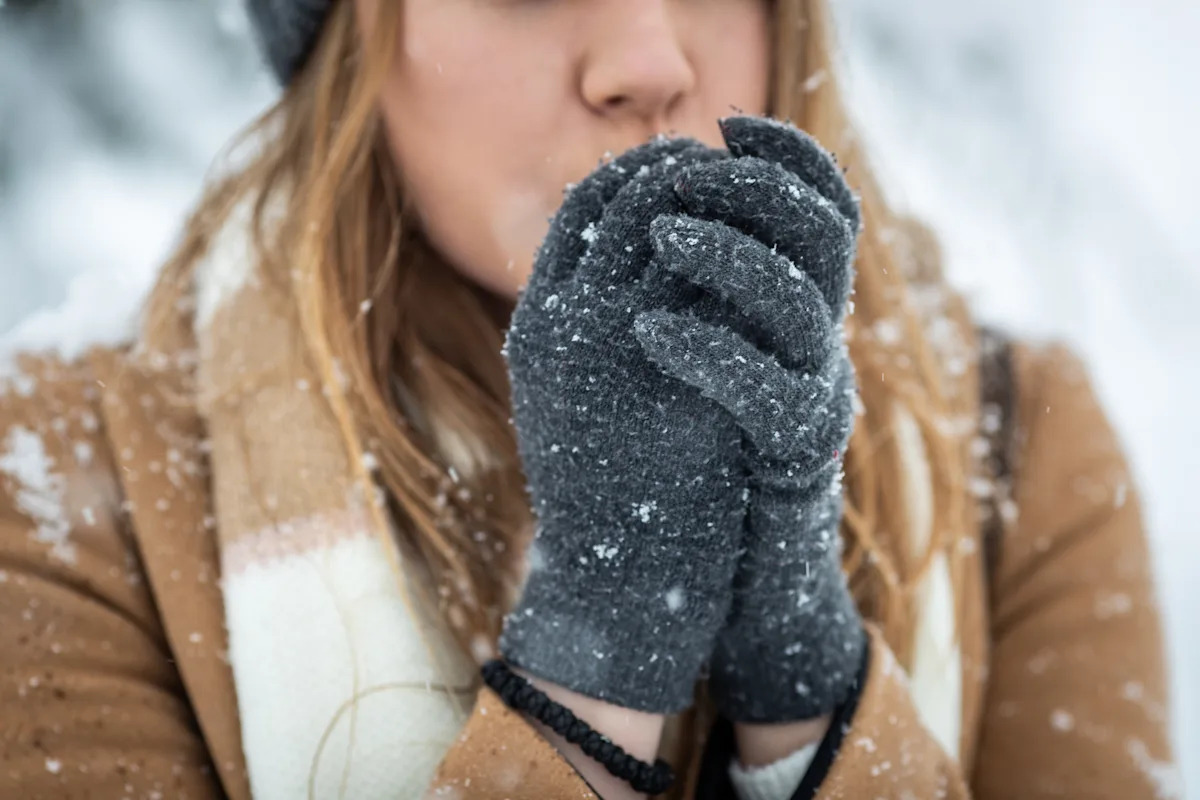In addition to the shorter days and Baltic temperatures, this time of year brings with it a plethora of illnesses and viruses to contend with – from the common cold and flu, to COVID variants.
But it isn’t just these types of infections that put our physical health at risk in winter.
How the cold weather impacts our physical health1. Aching joints and worsening of arthritis
If you suffer from chronic joint pain or inflammation of the joints, winter can make matters worse as the cold constricts blood vessels. While the body does this to help conserve heat, it can reduce blood flow, which in turn may lead to stiffness and accentuate arthritis.
Top tip: In addition to wearing layers, thermals and gloves, you may also wish to invest in some heat patches or hand warmers. It’s also important to keep the body active to help prevent your joints from seizing up.
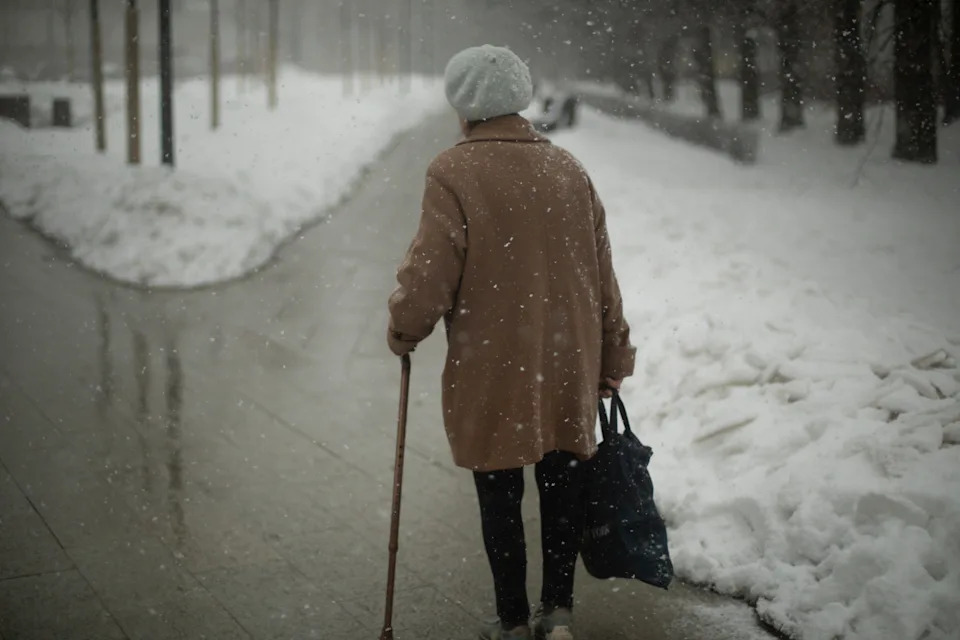
The cold weather can cause arthritis flare-ups and joint pain. (Getty Images)
2. Poor circulation, blood clots and subsequent heart issues
Another side-effect of reduced blood flow is poor circulation and thickened blood, which in turn can lead to clotting. This can put strain on the heart and be particularly dangerous for those who already suffer with heart conditions. In severe cases, this can lead to a heart attack or even a stroke.
Top tip: To help improve your circulation, the British Heart Foundation recommends you keep moving while you’re indoors to stay warm and boost your immune system.
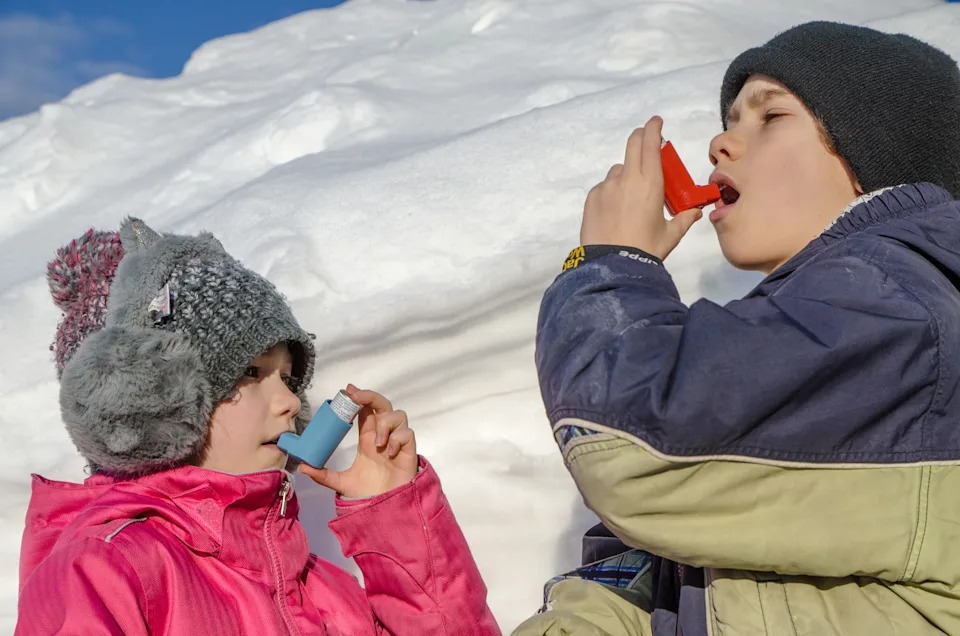
Those who do suffer with asthma should keep an inhaler on them at all times. (Getty Images)
3. Lung problems and difficulty breathing
Cold air also tends to be dry, and without some level of humidity, those with chronic lung conditions or breathing difficulties may find it harder to breathe and cope at this time of year. The cold temperatures can lead to wheezing, coughing, shortness of breath and, in some instances, bronchitis and other such infections.
Top tip: Ashma and Lunk UK recommend drinking plenty of fluids, particularly hot drinks, as hydration helps protect your lungs. Where possible, try to limit how many times you go outside, particularly on cold days, and when you do, it’s advisable you breathe through your nose. Should you suffer with asthma, it’s a good idea to keep your inhaler on you at all times.

You might be more prone to headaches and migraines in the colder months (Getty Images)
4. Headaches and migraines
We’ve all felt the sensation of cold air whipping our faces – and, as well as being rather unpleasant, barometric pressure changes can also prompt headaches and migraines. You may also contract sinusitis or experience congestion at this time of year, which can also contribute to headaches and migraines.
Top tip: Try to monitor weather changes if you are prone to headaches and migraines. Per the NHS, reducing stress levels can also help curb the effects of headaches. If you go out, wear a hat to keep your head warm. And if you get sinusitis, try using a salt water solution to clean your nose and take paracetamol regularly.
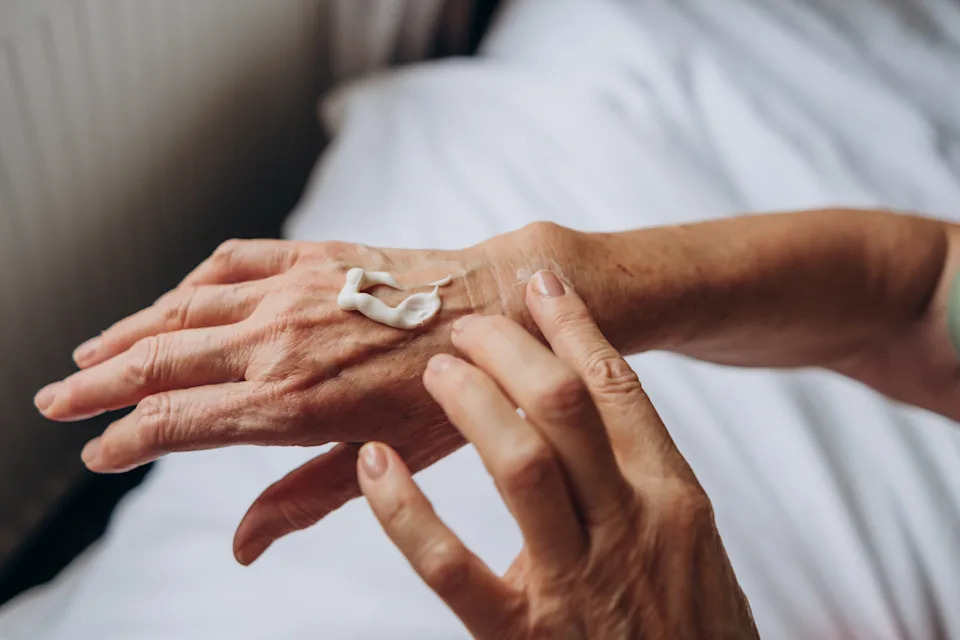
Exposure to the cold and indoor heating can lead to dry, cracked skin. (Getty Images)
5. Dry and cracked skin
If it’s not the cold air outside, it’s the warm air pumping from our radiators – and both can have an adverse effect on our skin (and hair, while we’re at it). The cold and lack of moisture in the air can reduce the amount of sebum created, which in turn dries our skin out. Similarly, fluctuating temperatures and our central heating can dry out the skin. Once cracked, our skin is much more prone to damage and it can require a lot of moisturiser or emollient creams to get it back on track.
Top tip: If you are prone to dry skin at this time of year, moisturise regularly. While tempting, avoid taking really hot showers and blasting the central heating, as The London Dermtology Centre says these can also contribute to cracked skin. Those with skin complaints such as eczema and psoriasis should follow GP or dermatologist guidance.
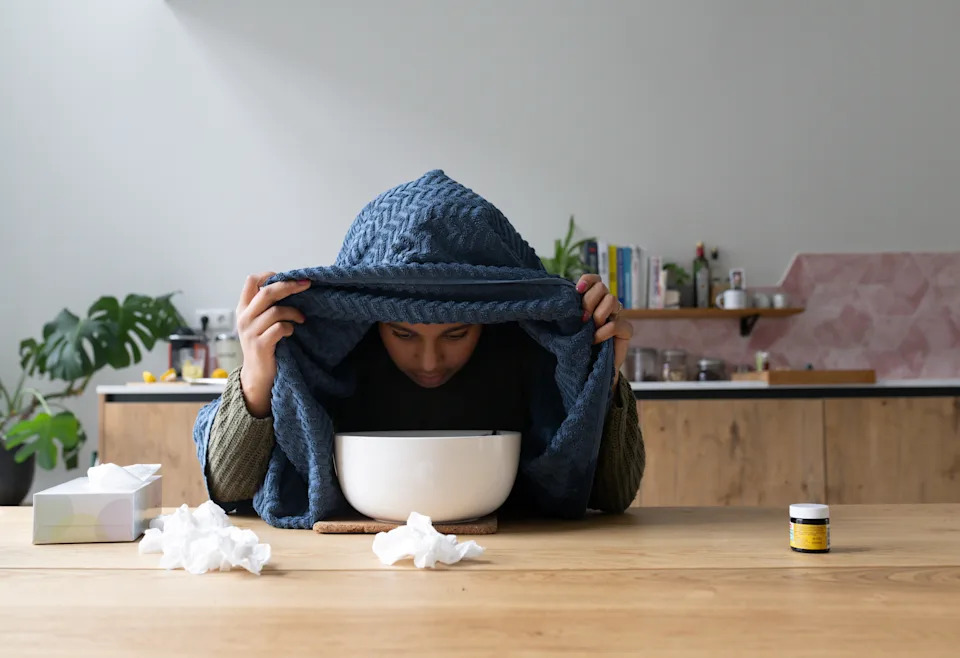
You may be more susceptible to colds and other viruses. (Getty Images)
6. Colds, flu and pneumonia
Although the cold weather does not cause infections, it can make you more likely to get sick. Airborne viruses survive better in cooler temperatures and our immune systems tend to be weakened in the cold weather – along with our responses.
Top tip: As well as getting a flu jab, you can reduce your chances of becoming unwell by regularly washing your hands, not touching your face, eating well and getting plenty of rest. Per the NHS, you should also avoid sharing towels with family members.
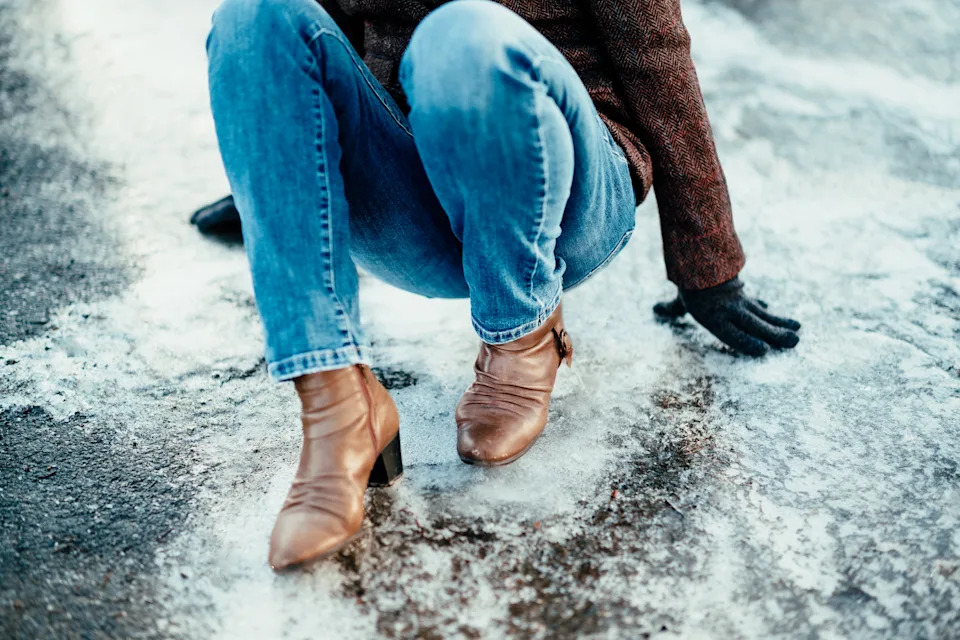
Icy surfaces can also make you more prone to falls. (Getty Images)
7. Accidents caused by ice, snow – and, yes, booze
From slippery surfaces to dry ice and self-induced clumsiness, you are four times more likely to have an accident in the colder months.
Dr Hilary Jones says: “Alcohol impairs balance and coordination, making it easier to slip or trip, especially in icy conditions during winter. In the event of a fall, icy surfaces can lead to serious injuries like fractures, sprains, or head trauma. If you do suffer a fall or injury, it’s important to seek medical attention promptly. For minor sprains and bruises, apply ice and/or heat.”
Top tip: Try to reduce your alcohol intake where possible. There are many alcohol-free and low-alcohol alternatives now, and apps such as the NHS’ Drink Free Days one can help you keep track of your progress – and how many calories and pounds you are saving!

You may find you’re more susceptible to UTIs, also. (Getty Images)
8. Increased chance of cystitis
Pharmacist Sultan Dajani previously told Yahoo UK that the cold weather can also increase our chance of urinary tract infections (UTIs), because the body’s organs are in overdrive trying to keep the body warm.
He explained that, when the temperature is low, they work hard to keep blood flowing, and the kidneys have more waste to filter. To filter the waste, they need to produce more fluid, which means we need the toilet more often. In turn, this can lead to dehydration, making us more susceptible to urinary infections.
Top tip: Drink plenty of fluids, avoid perfumed products in the genital area, take showers instead of baths and try to limit your intake of fruit juices, alcohol and sugary drinks.
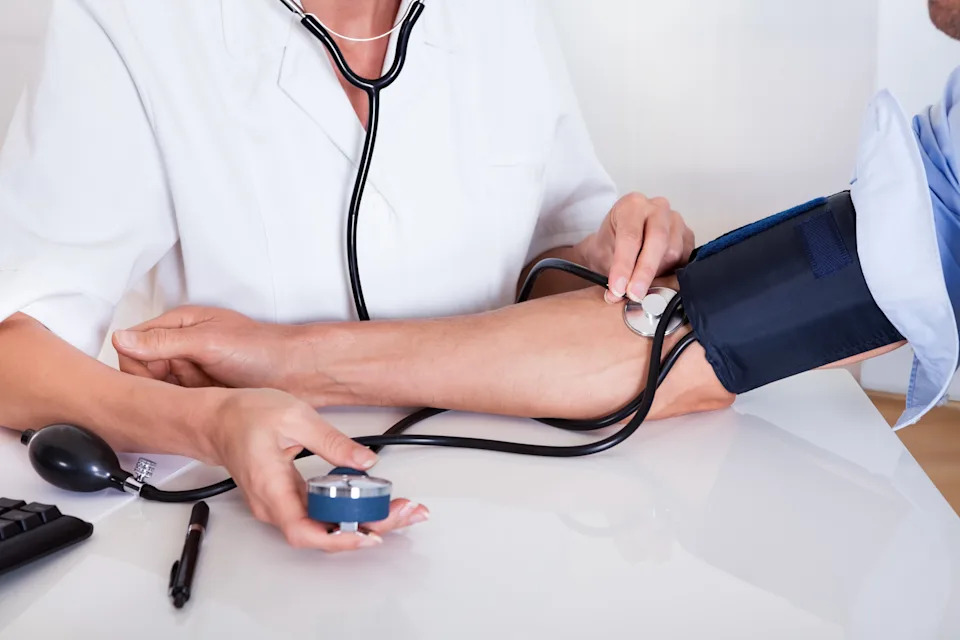
Your blood pressure may also be affected. (Getty Images)
9. High blood pressure
Blood pressure is typically higher during the winter months, as the body responds to the cold weather – which narrows blood vessels and induces vasoconstriction.
This constriction requires your heart to exert more pressure to circulate blood throughout the body, which also increases your heart rate.
Research has also shown that exposure to extreme temperatures, both hot and cold, can induce psychogenic fever and psychological stress. Cold stress, in particular, can have notable effects on both physical and cognitive performance, impacting motor function and cognitive abilities.
Top tip: To minimise the risk of high blood pressure in winter, it’s important to maintain a healthy diet and avoid foods with high salt and fat content, which can cause blood sugar levels to spike. Stay warm where possible, and avoid alcohol and caffeine.
Read more about cold weather and health:

